U-Turn on Mobile Phones in Cars
 After resisting calls to ban the use of mobile phones in cars, the government appears to be ready to introduce new legislation which would specifically ban motorists from using hand-held phones while on the move. Research has shown that using mobile phones in cars increases the risk of causing an accident by a factor of four. Tests show that the distraction of talking on the phone makes drivers more dangerous than when they are under the influence of alcohol. Police can prosecute motorists under existing legislation, but it is argued that making it a specific offence will drive the message home more effectively. The use of "hands free" devices would continue to be permitted, despite the distraction element still present in these. The government plans further consultation before introducing legislation. Transport officials believe that the use of mobile phones in cars has become so prevalent that despite fines and penalty points on licences, there will be 100,000 convictions a year. A spokesman for the Automobile Association, however, pointed out that there were many other in-car distractions and that eating, smoking, drinking and changing in-car entertainment CDs were just as bad. But using mobile phones while driving has become a way of life for many people - for both business and social reasons.
After resisting calls to ban the use of mobile phones in cars, the government appears to be ready to introduce new legislation which would specifically ban motorists from using hand-held phones while on the move. Research has shown that using mobile phones in cars increases the risk of causing an accident by a factor of four. Tests show that the distraction of talking on the phone makes drivers more dangerous than when they are under the influence of alcohol. Police can prosecute motorists under existing legislation, but it is argued that making it a specific offence will drive the message home more effectively. The use of "hands free" devices would continue to be permitted, despite the distraction element still present in these. The government plans further consultation before introducing legislation. Transport officials believe that the use of mobile phones in cars has become so prevalent that despite fines and penalty points on licences, there will be 100,000 convictions a year. A spokesman for the Automobile Association, however, pointed out that there were many other in-car distractions and that eating, smoking, drinking and changing in-car entertainment CDs were just as bad. But using mobile phones while driving has become a way of life for many people - for both business and social reasons.
New Era for 28,000 School Pupils
As school pupils returned to classes this week in Glasgow, after the summer holidays, 28,000 secondary (12-18 year-old) pupils in 28 new or rebuilt schools were able to enjoy the fruits of "Project 2002" - a £1.2 billion public-private partnership project which has transformed these city schools. It has been the largest school investment programme of its kind in the UK and over the next 28 years a further £1 billion will be invested in maintenance, security and facilities management. Other local councils are also working on similar projects - Renfrewshire has just agreed a £142 million building programme to build six new schools and modernise 15 existing buildings in Paisley and surrounding towns in the county.
Scottish Media Group to Sell TV Franchises?
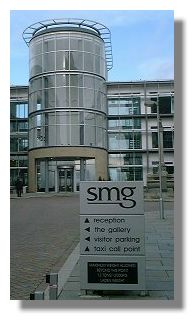 There was speculation this week that SMG (Scottish Media Group) is in discussion with potential purchasers of its TV subsidiaries, Scottish Television and Grampian TV. SMG has a crippling debt burden of £400 million and the price tag for the two TV companies could be around £300 million. English-based Granada, which has six regional TV licences in the UK, already has a 16.87% stake in SMG.
There was speculation this week that SMG (Scottish Media Group) is in discussion with potential purchasers of its TV subsidiaries, Scottish Television and Grampian TV. SMG has a crippling debt burden of £400 million and the price tag for the two TV companies could be around £300 million. English-based Granada, which has six regional TV licences in the UK, already has a 16.87% stake in SMG.
Record House Price Rises
A report by banking company Lloyds TSB Scotland says that house prices have increased in Scotland by an average of 8.7% over the last twelve months. The biggest increases recorded by the bank were in Glasgow where they rocketed by over 20%, the highest rate of increase seen since the housing boom of the late 1980s. However, Dundee prices rose by only 2.8% in the last twelve months - in Aberdeen the increase was 12% and in Edinburgh it was 14.2%. Despite the boom, the ratio of average price to earnings stands at 2.7; in parts of the UK, especially the south-east of England, the ratio is over 5.0. A growing number of homes are being bought by single Scots. They now account for over 50% of first-time buyers, compared with 30% in 1983.
Glut of Wind Farms Forecast
 The Scottish government target for generating electricity from renewable resources has been raised from 30% in 2020 to 40%. If the target is met, it will mean a huge increase in the number of wind turbine farms, making that the greatest energy source ahead of coal, gas or nuclear power. While environmentalists welcomed the move, others fear that it could result in a proliferation of land-based windfarms, with a consequent damage to the landscape. 150 windfarm projects are currently under consideration, totalling 5,000 turbines, in addition to the 11 already operating. It is thought that wave and tidal power technology is ten years away from being proved, so that puts the pressure on wind-powered projects.
The Scottish government target for generating electricity from renewable resources has been raised from 30% in 2020 to 40%. If the target is met, it will mean a huge increase in the number of wind turbine farms, making that the greatest energy source ahead of coal, gas or nuclear power. While environmentalists welcomed the move, others fear that it could result in a proliferation of land-based windfarms, with a consequent damage to the landscape. 150 windfarm projects are currently under consideration, totalling 5,000 turbines, in addition to the 11 already operating. It is thought that wave and tidal power technology is ten years away from being proved, so that puts the pressure on wind-powered projects.
Retailers Blame Bad Weather
The latest estimate of retail sales in Scotland suggests that year-on-year sales in the country's high streets rose by 4.9% in July, compared with 6.6% in June. Although the increase was relatively healthy, it was lower than that in England and Wales. The Scottish Retail Consortium has suggested that the poorer figures in Scotland could be attributed to the bad weather in July. The Royal Bank of Scotland's retail sales monitor showed that food retailers increased by 5.5% while non-food sales rose by only 4.3% compared to last year.
Dundee Setting Out to Discover Itself
 Dundee has often been the subject of jokes and jibes from comedians over the years but now a leading academic says the city needs a "self respect course" to give residents a sense of pride in its achievements. Charles McKean, professor of Scottish architectural history at Dundee University says that Glasgow successfully carried out a similar exercise 20 years ago and now it's time for Dundonians to do the same. He points out that 400 years ago Dundee was the second city of Scotland, with a larger population than Edinburgh and seven times that of Glasgow. Quite a lot of the old city survives and Prof McKean plans to run tours of the historic heart of Dundee. He says there are buildings with facades dating back to 1700. In 1830 the city was the linen capital of Britain and the port is one of the jewels of Dundee's historical crown. One of the oldest buildings in the city, Gardyne's Land, features a 13th century well. In recent years, Dundee has used Antarctic explorer Robert Falcon Scott's research ship "Discovery" (built in Dundee in 1901) to market itself as the "City of Discovery" but has suffered high unemployment as traditional industries have declined. The illustration here is of the Caird Hall in the centre of the city.
Dundee has often been the subject of jokes and jibes from comedians over the years but now a leading academic says the city needs a "self respect course" to give residents a sense of pride in its achievements. Charles McKean, professor of Scottish architectural history at Dundee University says that Glasgow successfully carried out a similar exercise 20 years ago and now it's time for Dundonians to do the same. He points out that 400 years ago Dundee was the second city of Scotland, with a larger population than Edinburgh and seven times that of Glasgow. Quite a lot of the old city survives and Prof McKean plans to run tours of the historic heart of Dundee. He says there are buildings with facades dating back to 1700. In 1830 the city was the linen capital of Britain and the port is one of the jewels of Dundee's historical crown. One of the oldest buildings in the city, Gardyne's Land, features a 13th century well. In recent years, Dundee has used Antarctic explorer Robert Falcon Scott's research ship "Discovery" (built in Dundee in 1901) to market itself as the "City of Discovery" but has suffered high unemployment as traditional industries have declined. The illustration here is of the Caird Hall in the centre of the city.
Growth at Prestwick Airport
Irish airline Ryanair has announced that it has decided to create a new maintenance hub at Prestwick Airport in Ayrshire and plans to double the number of its routes out of the airport. Over the next five years services will be introduced to Italy, southern France, Spain, Sweden and a second route to Germany. The new scheduled services will mean as many as four million passengers going through Prestwick each year. The maintenance facility will create 180 new jobs.
Scotland's Top International Airport
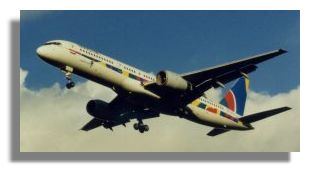 Figures published this week in a report by the Scottish Executive show that 1.7 million Scots flew abroad from Glasgow Airport, compared to only 473,000 going overseas from Edinburgh. The figures were immediately seized upon by campaigners advocating that Glasgow should be the future international air hub for Scotland. But in total number of passengers to all destinations, Edinburgh is catching up - in 2001 Glasgow had 7.3 million passengers and Edinburgh 6.0 million. A growing number of Scots (890,000 in 2001) are flying to Amsterdam's Schipol Airport for onward flights to destinations around the world, highlighting the need for more international routes from Scotland. But the most popular foreign destination is mainland Spain - 1.2 million travelled to the sun in that part of Iberia.
Figures published this week in a report by the Scottish Executive show that 1.7 million Scots flew abroad from Glasgow Airport, compared to only 473,000 going overseas from Edinburgh. The figures were immediately seized upon by campaigners advocating that Glasgow should be the future international air hub for Scotland. But in total number of passengers to all destinations, Edinburgh is catching up - in 2001 Glasgow had 7.3 million passengers and Edinburgh 6.0 million. A growing number of Scots (890,000 in 2001) are flying to Amsterdam's Schipol Airport for onward flights to destinations around the world, highlighting the need for more international routes from Scotland. But the most popular foreign destination is mainland Spain - 1.2 million travelled to the sun in that part of Iberia.
Commercial Airlines Bid for RAF Base
Seventeen companies, including a number of charter airlines, have expressed an interest in using RAF Leuchars in Fife for commercial flights. But budget airline Ryanair, which has had discussions with the RAF in the past about operating from the base near St Andrews, is said not to be involved as it is concentrating on other routes. The RAF estimate that they could handle up to five commercial flights a day at Leuchars, but they would have to fit in with the operational requirements of the fighter base.
EasyJet Easy Go
When budget airlines easyJet and Go merged earlier this year the only route in Scotland where the two overlapped was Glasgow to Belfast. Now the company has announced that it is to halve the number of flights between the two cities from six to three - although that will be increased to four at the end of October. Flights between Edinburgh and Belfast are also being reduced to three a day.
Buses Get Splash of Colour
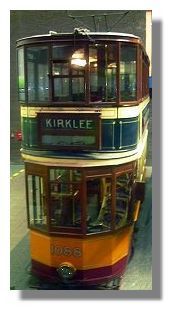 In the days of tramcars in Glasgow, the various routes through the city were colour coded (as in this photo), partly to make the approaching vehicle easier to identify from a distance and partly because the level of literacy amongst passengers was not 100%. Now the First bus company has unveiled a similar colour coding on 14 of its Overground routes through the city. Other routes will be given the same treatment over the next 18 months.The initiative was launched at the Museum of Transport which also marked the 130th anniversary of the first tramcars in Glasgow.
In the days of tramcars in Glasgow, the various routes through the city were colour coded (as in this photo), partly to make the approaching vehicle easier to identify from a distance and partly because the level of literacy amongst passengers was not 100%. Now the First bus company has unveiled a similar colour coding on 14 of its Overground routes through the city. Other routes will be given the same treatment over the next 18 months.The initiative was launched at the Museum of Transport which also marked the 130th anniversary of the first tramcars in Glasgow.
Big Issue Takes Issue with Harvey Nichols
The Edinburgh branch of the high class London department store Harvey Nichols, which opened last week, has already upset some of the locals. The "Big Issue" magazine is sold in the streets of Scotland by homeless people who are thereby given the opportunity to earn some much-needed cash without having to beg or busk. But managers at Harvey Nichols asked the Big Issue seller outside their store to move away in case he put off the wealthy clientele. Organisers of the magazine say there is a cruel irony that the up-market store is trying to stop the city's poorest people from going about their business selling the magazine in the public streets outside. It has been pointed out that there has been a Big Issue seller on that part of St Andrew Square for many years - long before Harvey Nichols appeared.
Scotland's Favourite Lager for England

Tennent's, now part of the Belgian brewing giant Interbrew, is conducting market research to see how to market its lager in England and Wales. Tennent's lager is the biggest-selling brand in Scotland with 41.6% of the market compared to 13.7% for the next biggest (Miller). The company has been concentrating on rolling out Stella Artois into the Scottish market before tackling the very competitive market in England with the Tennent brand.
Nobody Goes to Hell
A former moderator of the Church of Scotland has been accused of "false logic" by saying that he believes that "there are no people in Hell because nothing is more powerful than the love of God and He would be a monster if He condemned humans to eternal punishment." The Very Reverend Dr Andrew McLellan is about to become the Chief Inspector of Prisons for Scotland. The former moderator (leader) of the Church of Scotland admits that his views may be controversial - and that previous generations of ministers lost their jobs after questioning the reality of Hell. A Church of Scotland spokesman said that Kirk members "hold a wide range of views" on the subject but the Free Church of Scotland said that without Hell, people could continue doing evil without punishment.
Water Gets All Clear
 The water from Mugdock reservoir (which initially comes from Loch Katrine in Stirlingshire and supplies much of Glasgow with its tap water) has been given the all clear. Scottish Water had found an increase in the levels of the bug cryptosporidium and warned 150,000 users to boil the water. Later, they turned off the supply from Mugdock and routed water from other sources. But the director of public health has reported that during the emergency the number of stomach upsets had actually fallen and that the contaminated water had not produced one single case. There are usually a few cases each week, often arising from people returning from holiday in foreign countries.
The water from Mugdock reservoir (which initially comes from Loch Katrine in Stirlingshire and supplies much of Glasgow with its tap water) has been given the all clear. Scottish Water had found an increase in the levels of the bug cryptosporidium and warned 150,000 users to boil the water. Later, they turned off the supply from Mugdock and routed water from other sources. But the director of public health has reported that during the emergency the number of stomach upsets had actually fallen and that the contaminated water had not produced one single case. There are usually a few cases each week, often arising from people returning from holiday in foreign countries.
Broadband Service by Steam Radio
Efforts to extend broadband technology to the Western Isles of Scotland are hampered by the distances and low population density, so alternatives to satellite or fibre optics have had to be considered. Tenders are now being invited to set up a wireless network using the islands' existing radio and telecommunications masts from Lewis in the north to Barra in the south. Further aerials would be installed close to communities on the islands, allowing small and medium sized businesses to enjoy the benefits of faster communications. However, while this is to be commended, small businesses in cities on the mainland of Scotland are complaining about the lack of broadband facilities even in urban areas. British Telecom have been extremely slow to install the necessary equipment in their exchanges - pointing out that they are unable to subsidise the service, despite government exhortations to implement the new technology as fast as possible.
Cattle Feed Prices Soar
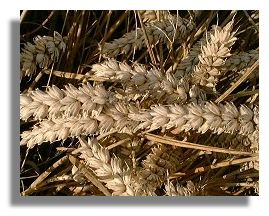 The lengthy periods of rain this year has ruined the hay crop pushing the price to the point where fodder is worth more than grain. Feed merchants have increased prices by over 30% and that will impact on the cost of winter feed not just for cattle but also for riding schools and stables. The heavy rains have turned some fields into quagmires, forcing some dairy farmers to bring cattle back into their winter housing where they are having to be fed. Fodder is available in the south of England, where the weather has not been so bad, but transport costs then add to the problem.
The lengthy periods of rain this year has ruined the hay crop pushing the price to the point where fodder is worth more than grain. Feed merchants have increased prices by over 30% and that will impact on the cost of winter feed not just for cattle but also for riding schools and stables. The heavy rains have turned some fields into quagmires, forcing some dairy farmers to bring cattle back into their winter housing where they are having to be fed. Fodder is available in the south of England, where the weather has not been so bad, but transport costs then add to the problem.
Supermarket Investing £75 Million in Scotland
 The ASDA supermarket chain has unveiled additional expenditure on its building programme in Scotland which will bring its total spend to £75 million this year. The chain recently took on 500 extra part-time staff at its enlarged store at Almondvale in Livingston - its first ASDA-WalMart supercentre in Scotland. The £35 million flag-ship store has 100,000 square feet of space and is now Scotland's biggest supermarket. The supercentres include a sports shop, DIY section, baby shop, homewares and electrical goods as well as traditional supermarket goods.
The ASDA supermarket chain has unveiled additional expenditure on its building programme in Scotland which will bring its total spend to £75 million this year. The chain recently took on 500 extra part-time staff at its enlarged store at Almondvale in Livingston - its first ASDA-WalMart supercentre in Scotland. The £35 million flag-ship store has 100,000 square feet of space and is now Scotland's biggest supermarket. The supercentres include a sports shop, DIY section, baby shop, homewares and electrical goods as well as traditional supermarket goods.
Putting Islay on Gaelic Map
A new £2 million education centre for the Gaelic language and culture opened on the island of Islay this week. 700 years ago, Islay was the location of the court of the Lord of the Isles at Finlaggan and was the heart of Gaelic culture at that time. Over the years, the Gaelic language has struggled on Islay, with the number of speakers falling from 50% in 1971 to around 20% today. The education centre will be linked to the University of the Islands and will be overseen by Sabhal Mor Ostaig, the Gaelic College on Skye.
Call to Ban Jetskis on Loch Lomond
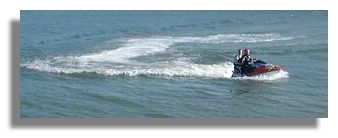
A pressure group "Friends of Loch Lomond" has joined the call for a complete ban on the use of jetskis on Loch Lomond. They rejected a zoning scheme to confine the use of the high-speed craft to designated areas when they found that the people who live on the bonnie banks of Loch Lomond were hostile to having them anywhere on the loch. There are 708 jetskis registered on the loch. There are frequent complaints about the noise, pollution, environmental issues and interference with other water users caused by jetskis which are capable of 80mph.
No to "Aye"
There can be few people in Scotland who do not understand the Scots word "aye" even if they don't use it in preference to "yes" or "always". But Sheriff Lindsay Wood, an Arbroath lawyer, instructed an accused to use "yes" instead of "aye" when he appeared in his court. Supporters of the Scots language immediately raised a stooshie (fuss) about the pronouncement but it was not the first time that "aye" has created controversy. In 1993, a man was held in contempt of court for the repeated use of the word. That incident led to questions in the House of Commons where the word "aye" is the only acceptable word at Westminster when voting for a motion.
Stamps for Scottish Playwright
 A special set of stamps were issued by the Post Office this week to mark the 150th anniversary of Great Ormond Street Hospital in London. They illustrate scenes from "Peter Pan" the classic play by Sir J M Barrie (1860-1937) who was born in Kirriemuir in Angus. Barrie donated the rights to Peter Pan in perpetuity to Great Ormond Street Hospital.
A special set of stamps were issued by the Post Office this week to mark the 150th anniversary of Great Ormond Street Hospital in London. They illustrate scenes from "Peter Pan" the classic play by Sir J M Barrie (1860-1937) who was born in Kirriemuir in Angus. Barrie donated the rights to Peter Pan in perpetuity to Great Ormond Street Hospital.
McQueen Finds Sanctuary
A boar which escaped from an abattoir in Dunblane, Stirlingshire, hit the headlines last week as "Scotland's Most Wanted Pig" after it had been named "McQueen" (after Steve McQueen and the "Great Escape"). After evading capture by scaling a fence and swimming a river, it disappeared into the hills. His emulation of the WW2 POW drama came to the attention of Martin Shaw, currently filming a BBC TV drama called "Judge John Deed" who offered to buy the pig for £400 so that the porker could enjoy a life of freedom on an animal sanctuary. But the pig's owner was reluctant to sell - noting that he "needed the pig's permission" - or maybe he was hoping for a higher offer? But the publicity about the wild boar is bad news for McQueens' relations - it has led to an increase in the number of people wanting to see what wild boar tastes like. Demand and prices are rising.
Supermarket Alternative to Church
 Executives at the Safeway supermarket at Anniesland in Glasgow say that as you can get everything in the store, why not offer marriages there too? They are drawing up plans to launch a nationwide hunt for a couple to get hitched in the megastore at Anniesland. Laws governing the places where a civil marriage can take place were recently relaxed. However, the omens are not good - the couple involved in England's first supermarket wedding in 1999 split up after a year.
Executives at the Safeway supermarket at Anniesland in Glasgow say that as you can get everything in the store, why not offer marriages there too? They are drawing up plans to launch a nationwide hunt for a couple to get hitched in the megastore at Anniesland. Laws governing the places where a civil marriage can take place were recently relaxed. However, the omens are not good - the couple involved in England's first supermarket wedding in 1999 split up after a year.
Saddle of Pork at Betting Shops
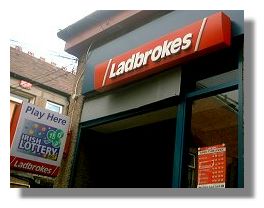 High street gambling chain Ladbrokes is planning to take advantage of a change in legislation which will allow them to serve hot food to punters. Until now they were restricted to selling cold pre-packed snacks. From this week, however, they are allowed to have in-house restaurants on their premises. So it will be "Saddle of Pork" while you "Plaice your Bets". Only the largest premises are likely to allow you to have a "Filly Steak."
High street gambling chain Ladbrokes is planning to take advantage of a change in legislation which will allow them to serve hot food to punters. Until now they were restricted to selling cold pre-packed snacks. From this week, however, they are allowed to have in-house restaurants on their premises. So it will be "Saddle of Pork" while you "Plaice your Bets". Only the largest premises are likely to allow you to have a "Filly Steak."
Wandering Wallabies Hop Ashore
Drivers admiring the scenery along the shores of Loch Lomond have a new hazard to look out for - wallabies hopping across the road. Fortunately, they are very shy and hop off as soon as humans appear, whether in cars or not. It appears that a small number of wallabies were brought to Inchconnan Island in the middle of the loch in the 1970s, opposite the village of Luss. They have been breeding like, well, wallabies, and now some of them have decided the island is overcrowded, so they have hopped (more likely they swam) to the shore. They have been seen in Luss itself and police are now considering putting up warning signs. But who would believe notices saying "Watch out for wallabies" on the bonnie banks of Loch Lomond?
Weather in Scotland This Week
 After a damp start on Sunday (0.7 inches of rain in Glasgow and Edinburgh, causing traffic to slow to a crawl on the motorways) the sun shone brightly, particularly in the west. The 14.5 hours of sunshine in Glasgow on Wednesday rated a mention on national TV news and boosted the average daily hours of sun in Glasgow to over 9 for the four days from Monday to Thursday. Temperatures reached 22C (72F) on Thursday in Edinburgh and Glasgow but further north in Aberdeen the mercury only reached 14C (57F).
After a damp start on Sunday (0.7 inches of rain in Glasgow and Edinburgh, causing traffic to slow to a crawl on the motorways) the sun shone brightly, particularly in the west. The 14.5 hours of sunshine in Glasgow on Wednesday rated a mention on national TV news and boosted the average daily hours of sun in Glasgow to over 9 for the four days from Monday to Thursday. Temperatures reached 22C (72F) on Thursday in Edinburgh and Glasgow but further north in Aberdeen the mercury only reached 14C (57F).
The weather eventually broke down on Friday and this picture of a dahlia in the walled garden at Bellahouston Park in Glasgow was taken that day - the camera (and the photographer) sheltering under a large umbrella.
|


The Scottish Snippets Newsletter in its original format began in April 1997 and continued in an unbroken series for 591 issues. Although no longer produced in that format there is now a regular update on the new and updated pages on the Rampant Scotland site and also "Scottie's Diary" on an intermittent basis, To receive this, kust send an e-mail to Scottie with "Subscribe Newsletter" in the subject line.
 Historical Affairs - Topical Items from Scotland's Past
Historical Affairs - Topical Items from Scotland's Past


